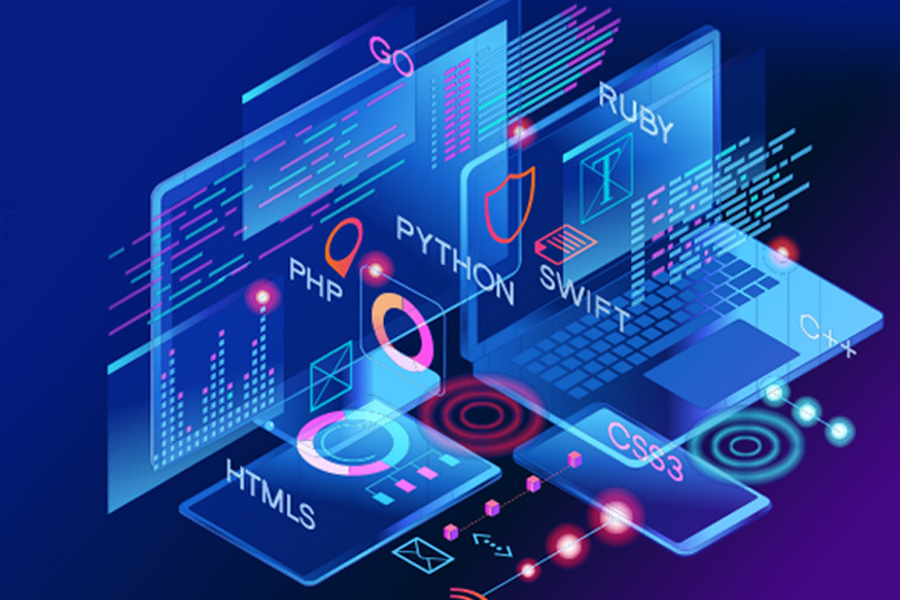The Future of Full-Stack Development: Trends to Watch in 2024

Introduction
Full-stack development has long been a cornerstone of modern web and app development, providing a versatile skill set that allows developers to work across both front-end and back-end technologies. As technology evolves, so does the landscape of full-stack development. In 2024, several trends are emerging that promise to shape the future of this field. It is recommended that professionals who are planning to acquire skills in this field enroll in a course conducted by a reputed urban learning centre, such as a full stack developer course in Bangalore, Pune, Chennai, and such cities that are leading learning hubs so that they acquire skills that are relevant and futuristic. Let us explore the trends in this area and understand their impact on developers and businesses alike.
Rise of AI-Powered Development Tools
Artificial intelligence is revolutionizing various sectors, and full-stack development is no exception. AI-powered development tools are increasingly being used to automate repetitive coding tasks, improve code quality, and even predict potential bugs before they occur. Tools like GitHub Copilot and AI-powered code linters are becoming essential in a full-stack developer’s toolkit, as evident from their inclusion in a comprehensive full stack developer course offered by any reputed learning center. These advancements allow developers to focus more on creative problem-solving and less on mundane tasks, significantly speeding up the development process.
Increased Adoption of Microservices Architecture
Microservices architecture is not a new concept, but its adoption is expected to skyrocket in 2024. This architectural style, which involves breaking down applications into smaller, independently deployable services, offers numerous benefits, including improved scalability, easier maintenance, and faster deployment cycles. For full-stack developers, this means a shift towards building more modular and reusable components. Mastery of microservices architecture, along with tools like Docker and Kubernetes, will be critical for developers looking to stay competitive in the job market.
Growing Importance of DevSecOps
Security has always been a concern in software development, but with the increasing frequency of cyberattacks, it’s becoming even more critical. In 2024, the integration of security practices into the DevOps process—known as DevSecOps—will be a key focus for full-stack developers. This approach emphasizes the need for security to be considered from the very beginning of the development cycle rather than as an afterthought. Full Stack developers will need to upskill in areas such as secure coding practices, automated security testing, and compliance management to ensure that their applications are robust and secure.
Evolution of Serverless Computing
Serverless computing is gaining traction as a cost-effective and scalable solution for running applications without the need to manage infrastructure. In 2024, we expect to see even more full-stack developers adopting serverless architectures, particularly for building APIs, microservices, and backend functions. Platforms like AWS Lambda, Azure Functions, and Google Cloud Functions are making it easier than ever to deploy code in a serverless environment. This trend will enable developers to focus more on writing code and less on managing servers, leading to faster development and deployment cycles.
The Proliferation of Low-Code and No-Code Platforms
The rise of low-code and no-code platforms is democratizing software development by allowing non-developers to create applications with minimal coding knowledge. While some might view this as a threat to full-stack developers, it presents an opportunity. Of late, full-stack developers who have the learning from an up-to-date full stack developer course are increasingly being called upon to extend the capabilities of these platforms by integrating custom code, APIs, and third-party services. This trend will require developers to strike a balance between using these platforms for rapid prototyping and relying on traditional coding for more complex functionalities. Consequently, expert full-stack developers are in high demand.
Enhanced Focus on User Experience (UX)
User experience continues to be a top priority in application development. In 2024, full-stack developers will be expected to have a deeper understanding of UX principles, as well as the ability to collaborate closely with designers. This trend is driven by the growing recognition that a seamless, intuitive user interface is critical to the success of any application. Full-stack developers will need to hone their skills in front-end technologies like React, Vue.js, and Angular, while also considering the back-end implications of their design choices. The proof of successful full-stack development lies in the extent to which end-user interfaces are customer-friendly. If one peruses the course curriculum of a full stack developer course in Bangalore, and such cities where quality technical courses are offered, it can be seen that front-end technologies are increasingly assuming importance and given extended coverage.
The Integration of Web3 Technologies
Web3, the next evolution of the internet based on decentralized protocols like blockchain, is poised to have a significant impact on full-stack development in 2024. Developers will need to familiarize themselves with concepts such as smart contracts, decentralized applications (dApps), and cryptocurrencies. As Web3 technologies become more mainstream, full-stack developers will be at the forefront of building applications that leverage these technologies, offering new opportunities for innovation in areas like finance, supply chain management, and digital identity.
Continued Emphasis on API-First Development
API-first development has been a growing trend for several years, and it’s set to continue in 2024. This approach involves designing and building APIs before the front-end and back-end components, ensuring that the API is a central part of the development process. Full-stack developers will need to be proficient in API design, documentation, and testing, as well as in using tools like Postman and Swagger. API-first development not only facilitates better collaboration between teams but also enables easier integration with third-party services and platforms.
Conclusion
The future of full-stack development is both exciting and challenging. With advancements in AI, the rise of serverless computing, and the increasing importance of security and user experience, full-stack developers will need to continuously adapt and upskill to stay relevant. By enrolling in an inclusive full stack developer course to learn these trends and leverage new technologies, developers can position themselves at the forefront of innovation in 2024 and beyond. The key to success will be a willingness to learn, experiment, and integrate new tools and methodologies into their workflow, ensuring that they remain indispensable in an ever-evolving tech landscape.
Name: ExcelR – Full Stack Developer And Business Analyst Course in Bangalore
Address: 10, 3rd floor, Safeway Plaza, 27th Main Rd, Old Madiwala, Jay Bheema Nagar, 1st Stage, BTM 1st Stage, Bengaluru, Karnataka 560068
Phone: 7353006061
Business Email: enquiry@excelr.com







